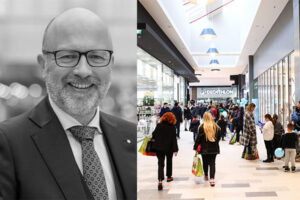BY JAMES TURNER
Building on an increasingly unpredictable global environment in the last six months of last year, we have been dealing with new challenges on almost a daily basis—acts of terrorism in previously “safe” cities, oil prices, the Chinese markets, the depreciation of the euro against the dollar, and on it goes. It also seems like years ago that the possibility of the “Grexit” was all over the news and yet, Greece is now dominating headlines concerning European stability again, this time as it becomes the frontline in attempts to stem the rising waters of human tragedy that are the refugee crisis. In addition to the oil price, China, currencies, and the refugee crisis, the political spectrum is widening, with support increasing at both ends of the ideological spectrum.
What is different about these circumstances is not in their very nature—we have endured choppy markets and unstable political environments before—rather, it is the speed of change and the unpredictability of multiple situations fueled by a general public that is making its collective populist voice heard. No longer content to be silent, the everyday person has multiple tools at her disposal to make her voice heard. Technology at our fingertips has forever altered the way we vent our feelings.
Now let’s be clear, ACROSS isn’t a political publication, nor should we focus on negatives. Quite to the contrary. These matters serve to remind us that our dynamic societies are comprised of human actions and reactions. We are living in an environment where, despite such turmoil, consumer confidence is high. Perhaps tenuously, it reminds me that we in the retail property business are becoming more akin to behavioral psychologists rather than “just” property people. More than ever, we need to judge others’ behavior and react to it in some shape or form. In the built and physical environments, this is an increasingly tough challenge.
One can probably eulogize about the impact that social media (and the internet generally) has had on every level of our existence. It has both given a voice to ordinary people and increased the velocity of information; it has both informed and misinformed. Our lives are irrevocably changed and we are seeing this on a mass scale at present. Consumer behavior is changing faster than physical supply networks can adapt, yet adapt we must. People are walking around with computers in their pockets and all that “big data” at their fingertips. Choice has never been so abundant nor have the outcomes of those choices ever been more diverse and confounding to those of us working within and creating physical environments.
It is not just the speed of, and easy access to, information (and misinformation) that interests me, but the widening divergence in opinions among everyday people and how these opinions are applied. On one hand, the growth of internet retail giants like Amazon seems unstoppable and people feel that the flames of consumerism are rampant and fueled mostly by advances in technology. Concepts like delivery of shopping by drones, driverless cars to taxi us around, and 3D printing are so new, yet already feel bizarrely familiar. (As an aside, I can’t believe that a little over five years ago the iPad had not yet been released!) We live in a world where the improvement in technology is so rapid and information so accessible that we don’t really notice change as individuals. As property owners, managers, and developers, however, we need to sit up and take notice.
Nevertheless, some of the more “traditional” and still successful retailing giants are noting other thought processes that seem to acknowledge the impact that the rapidity of change is having on our collective psyche. When talking at a Sustainable Business Debate hosted by the UK’s Guardian newspaper, Steve Howard, Ikea’s Head of Sustainability, made the comment: “If we look on a global basis, in the West, we have probably hit peak stuff. We talk about peak oil. I’d say we’ve hit peak red meat, peak sugar, peak stuff… peak home furnishings.” I am not sure what his employer thinks of the comments, but I expect he probably hit peak free meatball consumption quite rapidly.
In the UK, reality television programs are turning to baking shows or even sewing and pottery. This tells us that people are tired of the noise and the change. The comfort and basic values of society are a welcome change from the hub and buzz. I think Mr. Howard might be onto something, but I think it’s peak noise, not necessarily peak stuff. The stuff goes along with it.
Nothing will stem the tide of technology, that is a given. Futurists scramble over themselves to predict the next global trends, but in the meantime, we need to deal with real people in real environments and make the best of these exciting and challenging times. More column inches have been written in publications like this about the impact of technology on the future retail property than frankly most of us would care to read. A common (and not incorrect) conclusion is often to suggest that we need to create more active and engaging surroundings in our shopping centers in which modern retailing can operate, especially as the distinction between the physical and the virtual continues to blur.
At Balmain Asset Management, we have looked at this and see something a little more fundamental at base that should not be missed. At heart, retailing is fundamentally a commodity. There is something comforting in purchasing basic goods and services in an environment that is both fresh and friendly but also calm, reassuring and not complex. In a chaotic world filled with “peak stuff” and peak noise, we believe in the role of the neighborhood scheme as, quite literally, an important part of the food chain of the wider expanding retail environment, both physical and virtual.
In the rush for development to keep up with times that in many ways can’t be kept up with, we sometimes overlook what we already have. Existing buildings. Existing transport infrastructure. Existing planning consents. Existing retailers. Existing consumers. We miss this in the ever increasing pursuit of chasing the new. Regeneration and remodeling—not even repositioning—are not always sexy pursuits, but they are vital objectives to pursue. In the broader sense of sustainability, there are noble objectives to be achieved, but in a commercial world, there are many financial ones, too. Carried out correctly, the regeneration of grocery-anchored and predominantly non-discretionary retail is an important way to provide solid, commodity-like income streams for the institutional investment market, particularly for pension funds and insurers. The constant chase after brochure-worthy trophies sometimes ignores this, especially in Europe. Many US, Canadian, and Australian REITs have been built successfully on just these qualities of valuing such income streams. We Europeans should look a little closer at these opportunities as well.
In a tumultuous and confusing global environment, we could do worse than to focus on the basics and make the best use of our existing assets while creating new and exciting opportunities. What is a common factor in the outcry of people in this noisy world? What are they telling us with their political posturing and protesting? More than anything, “we don’t want to change.” Whether the voice they use is correct or not, they are effectively saying: “We want what we already have.” It is a human factor that we could learn in our industry, which principally serves the basic needs of people to consume basic goods and services. Sometimes keeping it simple and tuning out the noise is not a stupid path to take and might underwrite our investments longer than we expect.
What is your opinion on this topic? Discuss it with us! Send your opinion to opinion@across-magazine.com !






